
Around the Bloc: Detained Russian Governor on Hunger Strike
Kremlin critic says he was framed and that he’s ready to explain everything.
More...We kindly inform you that, as long as the subject affiliation of our 300.000+ articles is in progress, you might get unsufficient or no results on your third level or second level search. In this case, please broaden your search criteria.

Kremlin critic says he was framed and that he’s ready to explain everything.
More...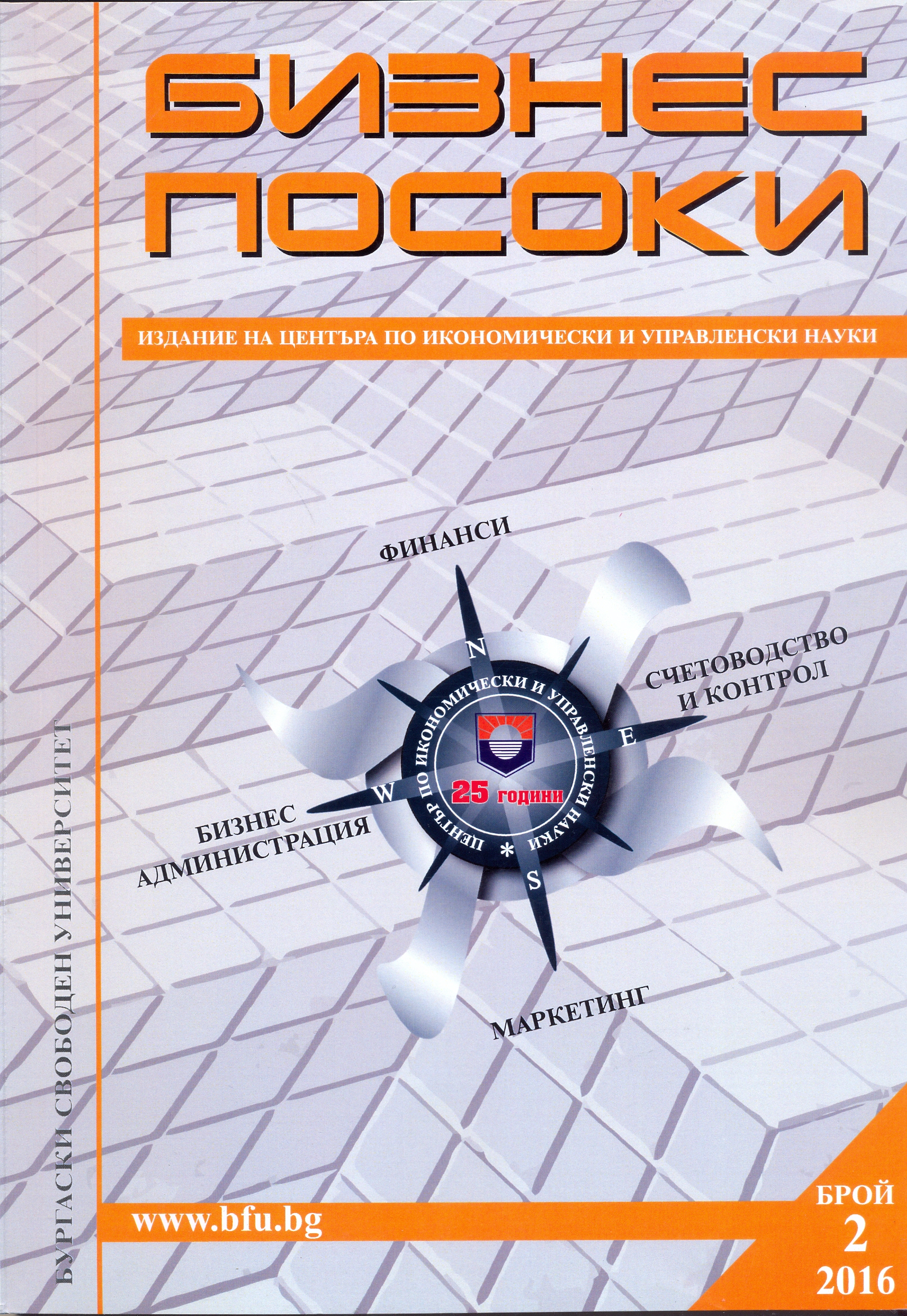
The article is an attempt to look, in an analytical and contrastive way, at the accounting principles of the Accounting laws in force both before and after 2016. To find the philosophy of the accounting principles we start from: the normative regulation of Accounting; the two accounting schools: the European-Continental and the Anglo-Saxon; the importance of the accounting information, based on the accounting principles, and the essence of Accounting as a social science. In order to look in a contrastive way at the topic of the accounting principles in full scale, presented are not only the accounting principles regulated in both Accounting laws but in the International Accounting Standards and their continuation: the International Standards of Financial Reporting, which are carried out by the European Union (as far as these principles are applicable for enterprises that have chosen the group of the International Accounting Standards as their accounting basis). On that base reflections are made and conclusions are drawn.
More...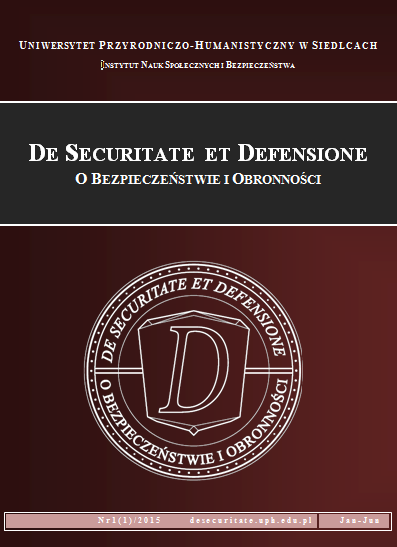
The aim of the paper is to present the changes that have taken place in the scope of the freedom of economic activity from the passing of the Freedom of Economic Activity Act of 1988 till today. Economic freedom is the principle of legal order expressed in the Constitution and specified in legislation which determines the economic system of the state based on the principles of market economy. Thereby, the freedom of economic activity has received a formal recognition and constitutional protection. Any derogation from the legal regulation in this scope should be treated as an exception justified by important public interest. The freedom of economic activity should be perceived in relation to processes and categories of economic character. Its ensuring in 1988 in the Freedom of Economic Activity Act was the beginning of the systemic transformation taking place in the political and economic field.
More...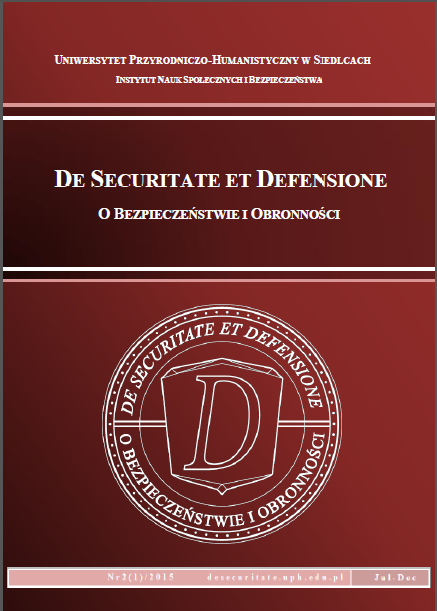
The point of this article is to show the influence of the need for safety on the state of socio-economic system. This need, is depicted as the main motivation for undertaking joint actions by people or eves as reason for existence of countries. In the succeeding part of the article, actions of the country, as the institution constituted by the cooperating citizens, are portrayed and then judged from the effectiveness point of view.
More...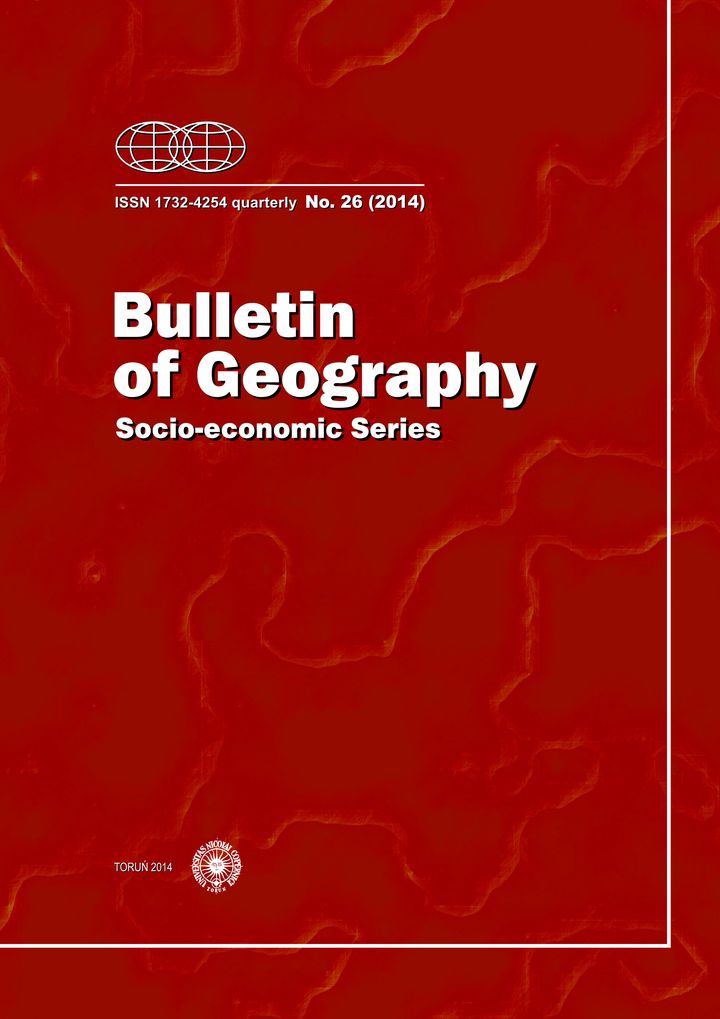
Within sub-Saharan Africa South Africa is one of the leaders in greening and initiatives for sustainable urban development. Notwithstanding the central role of climate change impacts and of the green challenge for the future, the greening of urban development has not been a major focus in local geographical research. The task in this paper is to investigate one aspect of reorienting the economy towards a pathway of low carbon growth and of addressing the green urban challenge. Specifically, issues around the greening of commercial property developments in South Africa are explored. Under the ratings of the Green Building Council of South Africa 50 green buildings existed by early 2014. Geographically these properties cluster in South Africa's major cities, in particular Johannesburg, the country's economic powerhouse and centre for corporate headquarters, and Pretoria, the administrative capital. New proposals for building retrofitting may result in a greater spatial spread of green buildings in the near future.
More...
The main objective of the European cohesion policy is the convergence of the Member States, enabling civilization advancement of less developed regions. In the implementation of this kind of policy the rational use of land plays an important role. The National Spatial Development Concept 2030 assumes that the determinant of the living conditions of citizens and the local and regional development is to restore and preserve the spatial order. An interesting example enabling the realisation of such a goal is to determine the functional area at the junction of three cities: Chorzów, Ruda Śląska and Świętochłowice. This area is characterised by a similar industrial history, analogous internal (e.g. social) and external (e.g. transport) conditions, which supports the idea of undertaking joint ventures related to the rational use of land.
More...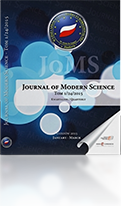
Globalization processes included among other legal area. The abolition of customs borders enforces a gradual approach of different legal cultures. A number of issues has already been covered by common EU rules, like the protection of consumers. The most important thing however, is to unify and synchronize contract law which is the foundation of economic activity. Numerous attempts to build a European civil code have been undertaken within the European Union. So far, these codes remain in the sphere of projects. Currently, the codification of law through the use of similar instruments of interpretation of the law is reflected the most clearly. An example of the applicability of regulations from different legal systems is a legal system in force in South Africa.
More...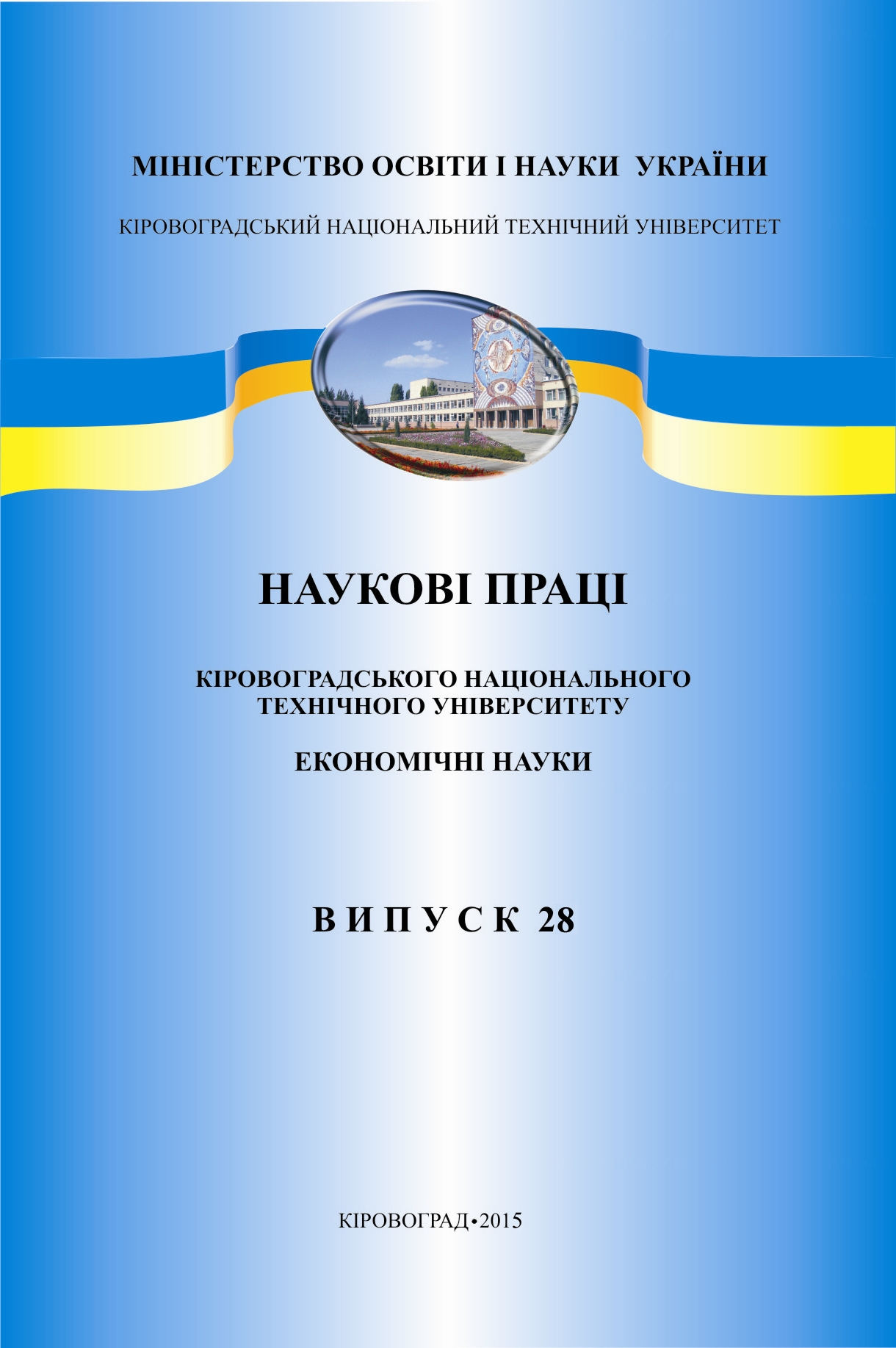
The issue of developing an effective system of customs control, which takes into account the interests of economic operators on simplifying foreign trade and the interests of the state to ensure an appropriate level of security remains unexplored at the present time. The aim of the article is to study European experience of forming an effective system of customs regulations, and to develop their own proposals for the development of a balanced system of customs regulation.The European package of laws brings together the basic concepts underlying the new security model to control the external borders of the EU, such as the harmonized system for risk assessment. Security Amendment to the Community Customs Code was published in the Official Journal of May 4, 2005 It was introduced a number of measures to strengthen security for goods crossing international borders. The amendment covers three major changes to the Customs Code: requiring traders to provide customs authorities’ information on the goods during import or export; provide reliable traders trade facilitation; introduction of common risk criteria within the Community.Based on a thorough analysis of European approaches to development of the customs administration we can summarize about the inadmissibility of a separate examination, operation and implementation of the risk management system of prior information and burnout authorized economic operator in Ukraine. These components "security amendments" in the EU are the part of a unified system that on the one hand aimed at ensuring a high level of safety of the Community and on the other - guarantees the trade community.
More...
The article considers the possibility of using a legal model of social entrepreneurship as a basis of formation of the legal structure of relations associated with satisfaction of social and property needs of Russian citizens taking into account positive foreign experience. The construction of a theoretical model of this legal structure is proposed by optimizing interaction between the means of private and public law.
More...
This article investigates the problem of determining the civil status of peasant farms in the light of the ongoing reform of civil legislation. We analyze the legal framework of regulation of peasant farms and state that peasant farms as essential subjects of business activity occupy an intermediate position between business partnerships and companies.
More...
The article characterizes the current state of legal regulation of entrepreneurship in agriculture. The authors investigate from legal viewpoint the basic theoretical and practical issues in this field and study various legal means that ensure agricultural development, food security in Russia, and protection of agricultural producers. The authors conclude that entrepreneurship in agriculture is of specific nature: agriculture is a sphere of intersectoral cooperation, which uses a variety of legal means of various legal entities. The mechanism of legal regulation in agriculture is reasonably organized in a way to ensure additional protection for agricultural producers.
More...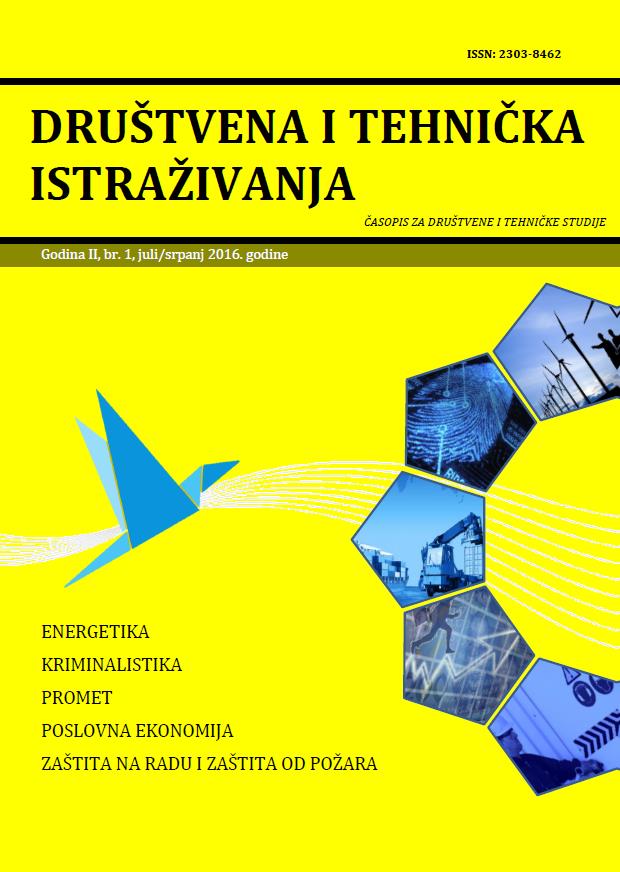
The focus of this article are the merger remedies. The article analyses procedural and substantive aspects of this notion, and particularly the applicable general principles, conditions for its implementation, various types of measures known to the comparative competition law, the appropriateness of the application of these measure in different circumstances, all with the overview of the relevant practice of the European Commission, but also the General Court and the Court of Justice of the European Union. Particular attention is paid to the analysis of the legislation of B&H, and the practice of the Competition Council of B&H, with the aim of ascertaining the normative and factual competency for the implementation of this notion. The conclusion of the article indicates that the competition law of B&H is not completely ready for the implementation of the merger remedies - structural and behavioral - in the procedure of the control of concentrations of the undertakings concerned.
More...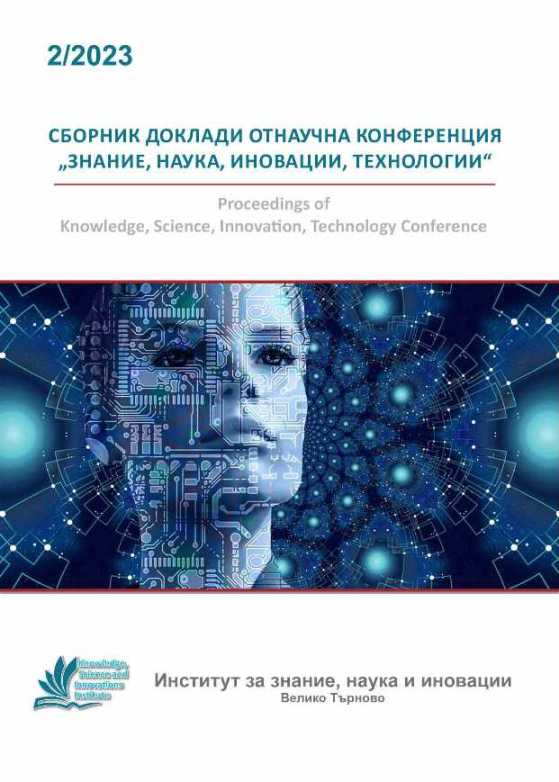
The continuing education of physicians and dentists raises various legal issues. This is due to the fact that there is no explicitly written norm that makes the continuing education of medical specialists mandatory. Accreditation organizations are the ones that play a major role in accrediting different trainings that bring different credit points to their holders. Another legal issue that is often discussed in the medical community is,, what value do medical certificates have that are issued by individuals or commercial companies that are outside the range of possibilities clearly outlined in a legal norm, for conducting continuing education.
More...
The article examines the development of the jurisprudence of the Bulgarian Supreme Court of Cassation on the issue whether a mortgage (lien) registered on a landplot can extend its effect to buildings built in the same plot after the registration of the mortgage deed. The gradual development of the interpretation of potentially conflicting provisions - art. 170 and 175 of the 1950 Obligations and Contracts Act - has been traced to clarify why the final conclusion that the mortgage lien extends to all buildings constructed in the landplot, for which the mortgage is registered, after the latter's registration. The author presents the thesis that this approach is an evolutionary development of the rules of use of interpretive methods in Bulgarian law, introducing the interpretation in accordance with basic legal principles as the main and preferred interpretive method. A breif comparison with developments in Roman law is also provided.
More...
Faptul că litigiul are ca obiect cererea de constatare a existenței dreptului de proprietate asupra disponibilităților bănești existente într-un depozit bancar, deschis pe numele debitoarei, care a parcurs procedura insolvenței, precum și realizarea dreptului sub forma remiterii sumei către reclamant nu atrage automat competența judecătorului sindic, ale cărui atribuții sunt reglementate de art. 45 din Legea nr. 85/2014. Astfel, având în vedere că reclamantul urmărește constatarea dreptului de proprietate asupra disponibilităților bănești existente în contul debitoarei, față de care s-a închis procedura insolvenței, și obligarea băncii la plata acestora către reclamant, în cauză sunt aplicabile normele de procedură prevăzute la art. 35 C. proc. civ. și cele de drept substanțial de la art. 557 și art. 2192 C. civ. Prin urmare, competența materială și teritorială de soluționare a cauzei în primă instanță nu se poate stabili potrivit normelor prevăzute art. 120 C. proc. civ. și dispozițiilor speciale privind procedura insolvenței, ci în virtutea dispozițiilor dreptului comun.
More...
Raportul de cauzalitate este nu doar o condiție a răspunderii, ci și criteriul după care se stabilește întinderea obligației de despăgubire. Decelarea acestei condiții nu este întotdeauna facilă, legătura de cauzalitate se configurează adesea într-un complex de împrejurări, cu interacțiuni diferite în producerea rezultatului, iar acestea trebuie examinate fiecare în parte spre a putea determina care dintre ele, singular ori împreună, au condus, în mod indivizibil, la producerea pagubei. Cauza prejudiciului nu poate fi identificată întotdeauna ca fiind singulară ori izolată, ci trebuie determinată prin evaluarea modului în care ea este favorizată de alte elemente, chiar secundare, care concură, înlesnesc sau favorizează, în cele din urmă, paguba. Toate împrejurările evocate pot provoca un context care, în sine, se poate identifica într-o etiologie unică și caracterizează, într-un caz particular, legătura de cauzalitate care concură la demonstrarea răspunderii civile. Or, în măsura în care instanța de apel a avut în vedere examinarea legăturii de cauzalitate numai prin evaluarea unui singur șir de elemente, evaluate ca indispensabile, dar a ignorat altele, la rândul lor esențiale, integrate aceluiași context, analiza legăturii de cauzalitate, condiție a răspunderii civile, este insuficientă, ceea ce nu corespunde unei aplicări corecte a legii.
More...
I) Însăși Directiva nr.17/2014 are ca premisă aplicarea principiului nominalismului (împrumutatul suportă riscul valutar), dar obligă statele membre să adopte o reglementare specială, derogatorie, de natură să asigure protecția consumatorilor, cu aplicabilitate numai pentru viitor, adică pentru contractele care vor fi încheiate sub imperiul unei asemenea reglementări. Prin urmare, în materia creditelor în valută, problema riscului valutar la care este expus consumatorul nu este susceptibilă de a fi soluționată pe calea unor acțiuni întemeiate pe Legea nr.193/2000, având în vedere faptul că riscul valutar este suportat de consumator nu în temeiul unei pretinse clauze abuzive din contractul de credit, ci este consecința aplicării nominalismului consacrat de lege. Obligația contractuală de a rambursa creditul în moneda în care a fost contractat creditul reprezintă transpunerea în practică a principiului nominalismului monetar care nu poate fi interpretat în favoarea consumatorului. II) Perceperea de către bancă a unei sume de bani consistente lunar (comisionul de adminstrare), duce la un dezechilibru semnificativ între drepturile și obligațiile părților, exprimat prin plata de către un consumator a unui cost al creditului care în fapt este o dobândă mascată și reprezentând evident o clauză abuzivă.
More...
C.J.U.E., Camera a cincea, hotărârea din 22 februarie 2024, cauza C-661/22
More...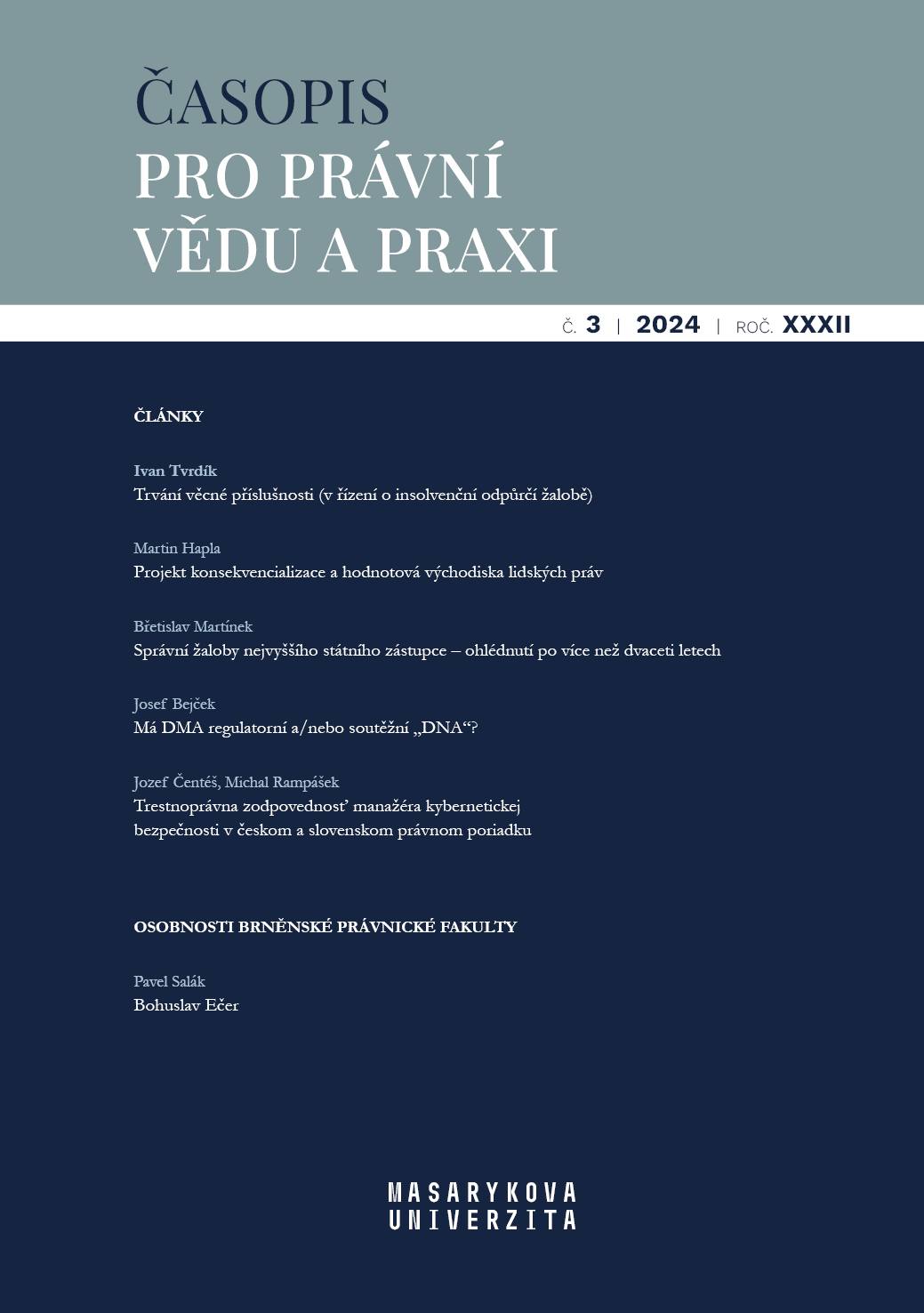
The European Commission’s „digital package“ includes the Digital Markets Act (DMA), which is fully enforced from March 2024. It is a ground-breaking pre-emptive regulation of the behaviour of operators of large digital platforms, based on automatic (per-se) casuistic rules depending on the Commission’s decision on the status of operators as gatekeepers. This ex-ante regulatory method is considered to be more timely and efficient for the functionality and fairness of digital markets compared to the previously applied ex-post control of the behaviour of large platform operators based on the enforcement of the prohibition of abuse of market dominance. The prevailing view is that competition law protection is late and inadequate on platforms already dominated by digital giants. However, the clear and precise rules contained in the DMA are paradoxically and ironically based on a reflection of the earlier European case law on the prohibition of abuse of dominance in competition law terms. While the DMA will bring increased transparency and legal certainty, it will also naturally create scope for circumvention of the exhaustive list of individual per se bans and commands, as opposed to the general standards of conduct under competition law. The article informs about the main principles of the regulation and comments on some of the legal and political tensions associated with it. It discusses the controversial possibility of double sanctioning under the DMA and competition law and critically evaluates the strict prohibition of self-preferencing of gatekeepers under the DMA. It discusses concerns about the chilling effect of universal regulation, which, in addition to eliminating the unfair practices of large digital platform operators, may stifle their innovative dynamism and thus competitive markets. The need for a sensible approach to this delicate regulation and for humble self-reflection is argued. Regulatory pressure from the Commission should be restrained and gradual in the search for the optimal regulatory position.
More...
This study discusses strategies to enhance the economic well-being of the community through engagement in entrepreneurship, especially through the franchise business model. Franchising is a marketing strategy for rapidly expanding businesses through the concept of cooperation. Legal protection for franchise business operators is crucial in maintaining a balance between the parties involved. Although there are no specific verses about franchising in the Quran, the principles of business ethics, justice, and compliance with Islamic law are essential foundations that should be applied in all forms of business transactions, including franchising. This study uses an empirical juridical legal approach to explore the concept of franchising, Islamic legal principles, and the impact of legal protection on franchise business operators. The results of this research are expected to make a significant contribution to advancing the legal discourse related to franchise business and Islamic law in Indonesia. Legal protection helps franchise business operators manage risks and conduct business in accordance with the principles of justice and business ethics, from both Islamic and general legal perspectives. Islamic and general law play a crucial role in shaping a fair, orderly, and sustainable franchise business environment. With a clear and consistent framework, franchise business operators can focus on the development and growth of their businesses. Thus, legal protection serves as a strong foundation for sustainable franchise business growth in Indonesia and makes a positive contribution to the economy and society as a whole. Franchise businesses can be a suitable form of enterprise that aligns with the values and principles of Islamic economics, providing a positive contribution to the economy and society overall
More...